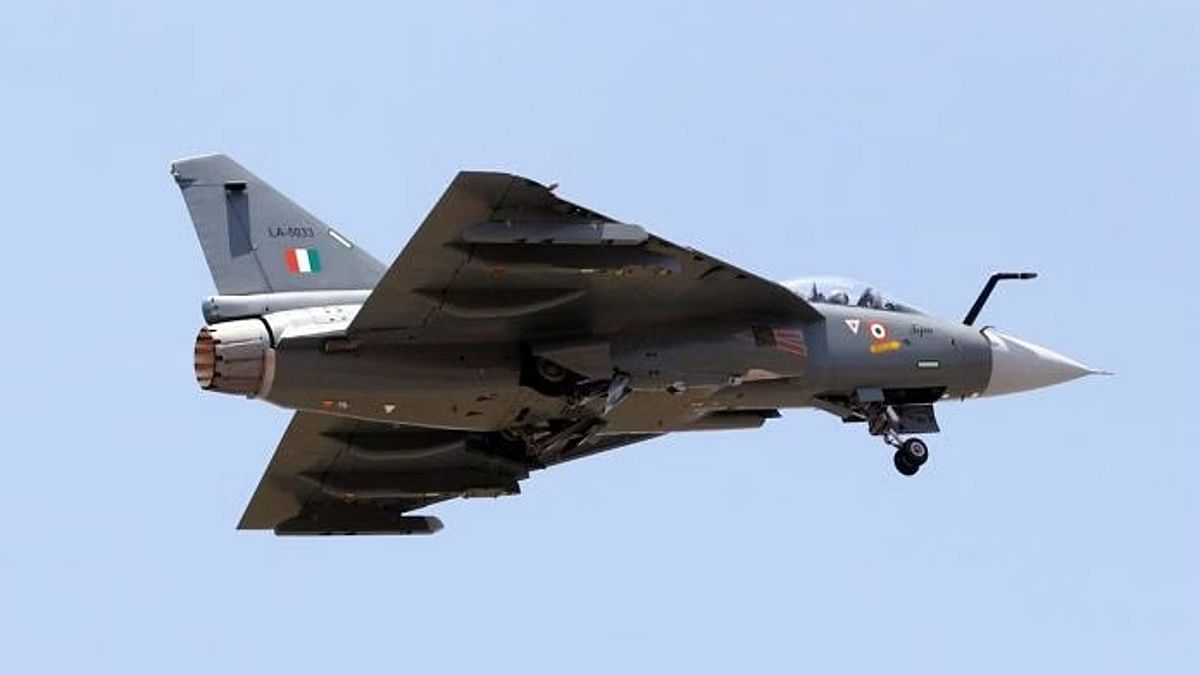In a significant move, the Indian government is preparing to impose fines on General Electric (GE) due to substantial delays in the delivery of engines for India’s indigenous Tejas Light Combat Aircraft (LCA) Mk1 series. Citing sources, Bloomberg reported that the penalty comes as GE pushed back its initial delivery timeline, shifting from 2023 to a new target in 2025. This delay has sparked concerns within India’s defense sector, as timely production and deployment of Tejas aircraft are critical for the Indian Air Force‘s modernization goals.
The Agreement: Supplying F404 Engines to Boost India’s Combat Fleet
Under the original agreement, GE was contracted to supply 99 F404 engines to Hindustan Aeronautics Limited (HAL) to power the Tejas LCA Mk1. These engines are crucial to support India’s push for a self-reliant defense ecosystem and boost the Indian Air Force’s operational capacity. The delay has interrupted HAL’s production schedules, forcing the Indian government to consider imposing penalties to expedite the fulfillment of the contract.
Strategic Implications of the Delay
The delay has broader implications for India’s defense preparedness. The Tejas Mk1, a vital part of India’s indigenous fighter jet fleet, was designed to reduce dependence on foreign aircraft while enhancing India’s aerial combat capabilities. As a multi-role light fighter, the Tejas Mk1 fills a crucial gap within the Indian Air Force, where aging aircraft require timely replacement. Delayed engine deliveries could hinder India’s ability to ramp up its combat-ready aircraft numbers and meet its strategic defense goals.
Timeline Shift: Delivery Pushed to 2025
According to the report, GE has cited various supply chain challenges, leading to a two-year delay. The first batch of engines was initially scheduled for delivery in 2023; however, this has now been pushed to 2025. This setback affects not only HAL’s assembly line but also India’s larger plans to strengthen its air fleet with domestically produced aircraft.
An Indian defense official confirmed that the delay is considered “severe,” with penalties anticipated to reinforce the urgency of delivering on the agreement. The government’s decision to impose fines is aimed at reinforcing accountability, ensuring that international suppliers meet their commitments.

Strengthening Domestic Production and Reducing Import Dependence
The Tejas LCA program is part of India’s broader “Make in India” initiative, aimed at bolstering local defense manufacturing capabilities and reducing reliance on foreign defense suppliers. While foreign collaborations are still essential for certain critical components like engines, India aims to develop the expertise and resources necessary to achieve self-reliance in the long term.
GE’s delay could prompt India to further accelerate efforts to develop indigenous engine technologies, especially as the defense sector is a high-priority area for reducing import dependence. In recent years, the Indian government has increased funding and support for defense R&D, with agencies like the Defense Research and Development Organization (DRDO) spearheading efforts to build core defense technologies within the country.
The Role of Penalties in Defense Contracts
Penalties for delays in defense contracts are not new, as they serve as a financial disincentive for contractors failing to meet agreed timelines. Such measures emphasize the government’s commitment to timely project execution, especially for projects of national importance. In this case, the penalties signal India’s resolve to hold international partners accountable, aligning with a strategic push for self-reliance.

A Critical Moment for India’s Defense Sector
The potential fines on General Electric underscore India’s determination to maintain timelines and accountability in its defense procurement process. The delay in engine deliveries for the Tejas Mk1 LCA poses challenges for the Indian Air Force’s readiness and the country’s broader defense strategy. As the government prepares to impose financial penalties on GE, it underscores the importance of reliable partnerships and timely deliveries in securing India’s defense future.
Looking ahead, India may consider reinforcing local R&D and developing alternative sources for critical technologies, creating a more resilient and self-reliant defense ecosystem.

